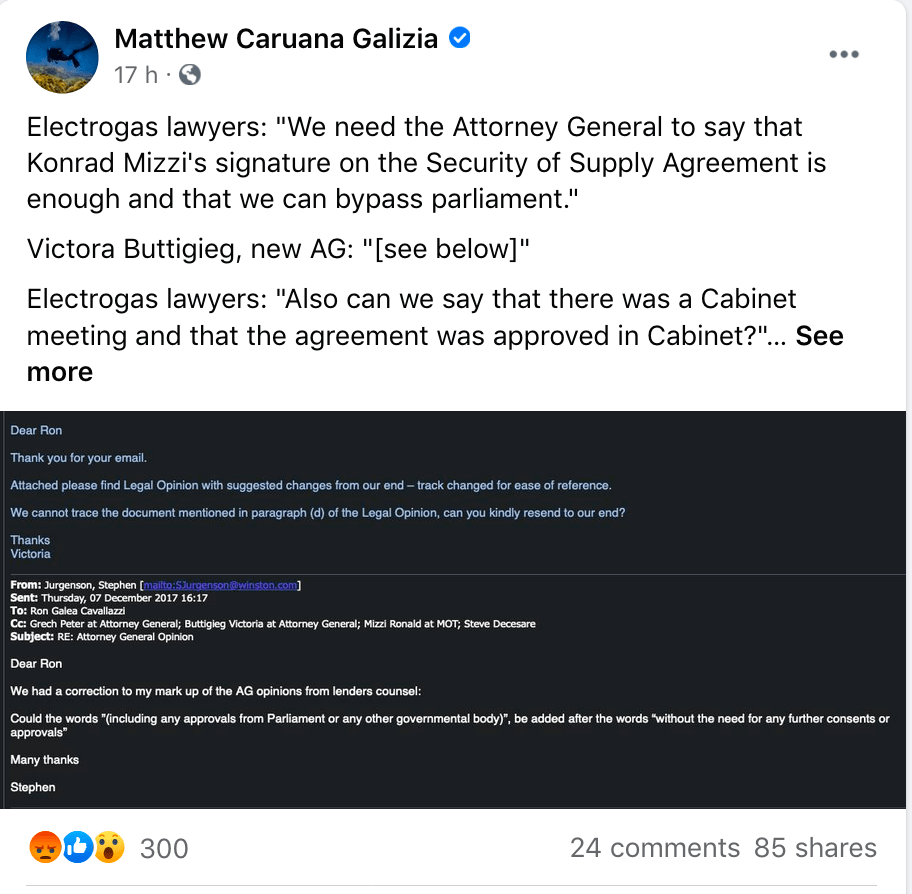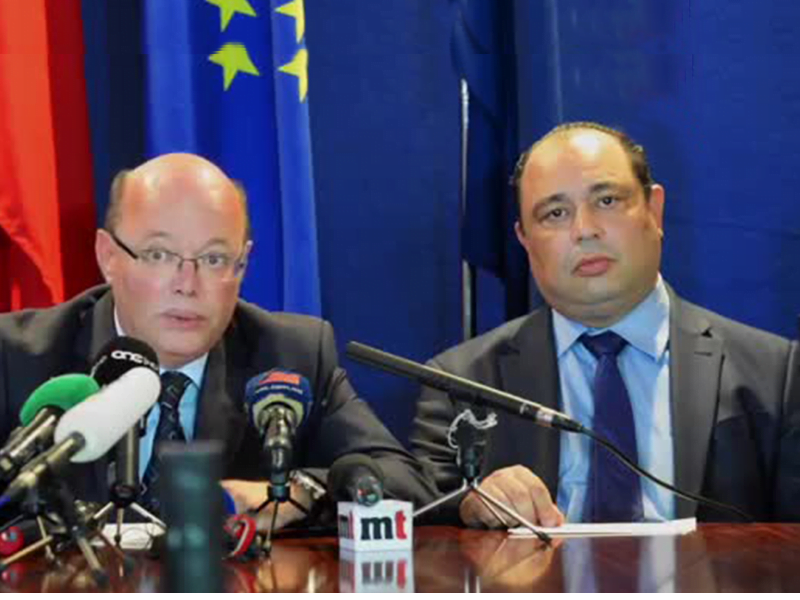Updated to include further testimony by former Police Commissioner Lawrence Cutajar during the public inquiry.
Attorney General Victoria Buttigieg, whose appointment was announced yesterday, had advised the police to keep then deputy police Commissioner Silvio Valletta on the investigation on mastermind suspect Yorgen Fenech despite the conflict of interest, former Police Commissioner Lawrence Cutajar told an inquiry this morning.
Testifying before the public inquiry looking into the murder of journalist Daphne Caruana Galizia, Cutajar said the police had received advice from the Attorney General’s office to keep then deputy Valletta on the case. At the time, Buttigieg was Assistant Attorney General, who was then moved State Advocate as the government split the roles due to recommendations by the Venice Commission.
The case she advised on what the constitutional case by the Caruana Galizia family to have Valletta removed as investigator.
She is now back in the same office as Attorney General.
“Was it Victoria Buttigieg [who gave the advice]?” asked lawyer Therese Comodini Cachia.
Cutajar confirmed.
Valletta was removed from the Caruana Galizia murder case after revelations of his close ties with the main suspect.
The conflict of interest was raised by the family of the journalist and Valletta was then exposed as having leaked information on police investigations to Fenech. The fact the Valletta is the husband of Labour MP Justyne Caruana, at the time Gozo Minister, had been flagged by the family and the press.
Buttigieg’s appointment as Attorney General has raised concern. Matthew Caruana Galizia published an email exchange showing Buttigieg that showed she agreed to accept disgraced former minister Konrad Mizzi’s signature on the Electrogas Security of Supply deal to bypass parliament at the request of Electrogas lawyers.

The board of inquiry heard how, in previous sittings, Inspector Ian Abdilla had told the board that he was on the way to question murder suspect Yorgen Fenech at his home in Portomaso but turned back when Valletta informed him that Fenech was unwell.
“Didn’t you ask how he knew Fenech was sick?” asked the board. Cutajar replied that he did not feel the need to ask.
“Is it normal in your experience that a police knows whether someone of interest knows whether someone is sick or not?” asked Comodini Cachia. Cutajar said it is not an unusual occurrence.
Comodini Cachia then brought up the constitutional case initiated by the Caruana Galizia family to remove Valletta from the case since he was the husband of the Gozo Minister at the time.
Cutajar said that even at the time when the court had not yet taken a decision, Valletta had been sidelined in the investigation. He did not say why.
Judge slams actions by police, AG on Panama Papers as ‘delaying tactics’
Chair of the public inquiry board, Michael Mallia, slammed the lack of action taken by the police and Attorney General, describing their decision to investigate only when enough evidence is gathered as “delaying tactics”.
During Cutajar’s testimony, the board asked whether the police had ever interrogated individuals involved in opening the bank accounts which were revealed in the Panama Papers. In response, Cutajar pushed the argument that first, one must gather evidence before sending for someone.
Frustrated, Mallia retorted that such arguments seem like “delaying tactics to do nothing, just like the excuse given by the Attorney General”.
“For one year after the Panama Papers revelations, nothing is done, while in every other country there were resignations,” Mallia said.
Cutajar’s argument of not having yet gathered enough evidence was used several times throughout his testimony when asked about lack of action taken by police in a number of instances. He said that when he left his role as police commissioner in January 2020, investigations were still underway. The Panama Papers were exposed in April 2016.
Another instance of lack of action questioned by the board was immediately following allegations by Caruana Galizia that Egrant, an offshore company, belonged to Michelle Muscat, the wife of former Prime Minister Joseph Muscat.
After they were published, Cutajar was infamously found dining at an eatery in Mgarr. On Wednesday, he revealed to the board that after receiving information on Pilatus Bank, which allegedly held the information on Egrant, he was advised by former Attorney General Peter Grech, through former assistant commissioner Valletta, that the allegations were “just from a blog, without disclosure”, which was “not enough to justify a bank raid”.
In an interview with The Shift, former European Court of Human Rights Judge Vincent De Gaetano said the Attorney General had acted “irresponsibly” on the Egrant inquiry.
“The Attorney General had said there wasn’t an underlying criminal offence but just writing on a blog,” he said.
At this point, Mallia said that today we know Caruana Galizia’s blog served as a source of information. “Did you not communicate with her to verify and authenticate the information? Even if it was an intelligence job, wasn’t there a criminal offence?”
Cutajar replied that he did not speak to Caruana Galizia.
Pressed by lawyer Jason Azzopardi about this “shocking” incident later on in the sitting, Cutajar said that he would not take action contrary to the advice he was given.












